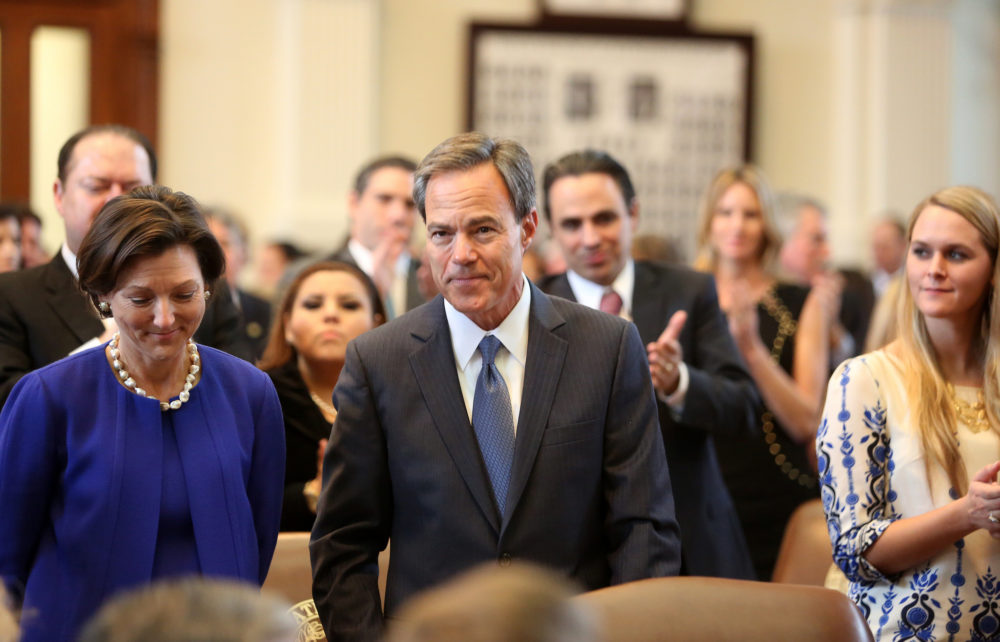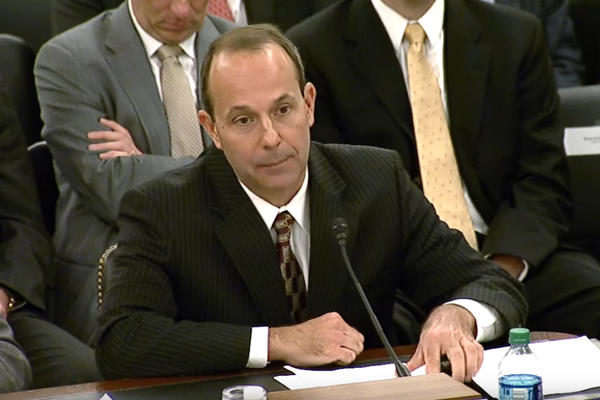This story from Texas Public Radio’s Ryan Poppe looks at what’s next after House Speaker Joe Straus’ decision not to seek another term. Texas Standard spoke to Dallas-Morning News political writer Gromer Jeffers about why Straus is leaving, and what it means for the center-right wing of the Texas GOP.
After serving five terms as House Speaker, Straus says he will not seek a sixth term, which would have made him the longest-serving Speaker in the state’s history.
Since his accession in the House, Straus has faced increasing opposition from groups backed by the Tea Party. During 2017’s two legislative sessions, that opposition seemed to reach a tipping point, with some questioning the speaker’s influence and leadership concerning controversial issues like the transgender bathroom bill.
Over 50 Republican-led groups have made an effort to oust Straus as speaker. Even at home in San Antonio, there are ongoing efforts among Bexar County Republicans to censure Straus’ leadership.
“After doing this five times and certain groups you are aware of are doing the same things again, at some point it becomes so repetitive that what I needed to do is go back home and take stock how things the district and they are very strong, maybe stronger than ever, which again indicates to me that it’s the right time to leave this job while things are looking good and strong,” Straus said.
Political Science Professor Mark Jones with Rice University’s Baker Institute of Public Policy says Straus’ departure from the job could present some challenges for House Democrats, who often sought help from the mainstream Republican.
“They did enjoy some influence with Speaker Straus and because the speaker, being a centrist conservative, was closer to them ideologically than the rest of the Republicans,” Jones says. “Now, I think we are going to see a House where Republicans steamroll Democrats just like they do in the Senate under the leadership of Lt. Gov. Dan Patrick.”
While there are some House members who may be pleased to hear Straus will not return to the Texas House in 2019, others like longtime friend and House colleague Rep. Charlie Geren, a Republican from north Texas, were moved to tears after hearing the news.
“I’m going to miss him. He was a very, very close friend. I really appreciate his friendship,” Geren says.
As far as Straus’ decision to not seek reelection, Geren says he could not nor would not talk about the behind-closed-doors conversation he had with Straus about the matter or his reasons for leaving.
Straus told reporters that rather than fighting through another contentious legislative session, he is looking for other ways to serve, like financially and publicly supporting longtime House Republican colleagues who will likely be caught in heated primary reelection bids in 2018.
Straus says he does not have any plans to run for another state office in 2018, but as far as the future goes or a possible run for governor…well, he’s leaving his options open for now.
“You know I’m not one to close doors and I have to tell you, as I’ve traveled this state, the response I’m getting is very, very strong and I’ve had people on a daily basis suggest that I run for another office,” he said.
Straus says he plans to stay involved and continue to engage voters on what they believe should be his next public role.
Straus was first elected to the Texas House of Representatives in 2005, where in 2009 he was elected by its members to serve as House Speaker.
Last month, Gromer Jeffers told Texas Standard he suspected Joe Straus could be planning an exit from the speakership. Jeffers now says the signs of a change included departures from Straus’ inner circle at the Capitol, and a lack of excitement about the 2019 Speaker’s race.
“I talked to folks after the caucus meeting, after the special session,” Jeffers says. “They talked about the process, and choosing the next speaker, and that there wasn’t a lot of excitement for Straus to come back around. Not that they were against him, but people just weren’t fired up about that prospect anymore.”
Jeffers says Straus’ departure is unusual, because he walked away from the speakership, rather than being forced out, as previous speaker Tom Craddick was.
“Part of it was, I think he was finished. I think he was fed up with it,” Jeffers says. “So now you have this ‘where do we go now? What kind of speaker do we choose next?’”
Jeffers says it’s natural that Straus would be feeling burned out, as formerly fringe figures in the Texas GOP are becoming more prominent, challenging more standard-issue conservatives like Straus.
“And seeing that the governor, Greg Abbott, sided with [Lt. Gov. Dan] Patrick on some of these things instead of the business-minded – dare I say – center-right, moderate Republicans, I think that was a wake-up call for Straus,” Jeffers says.














